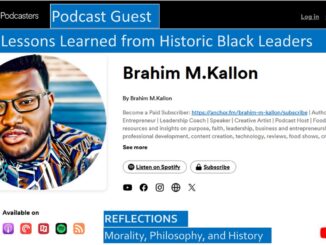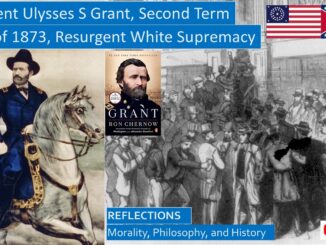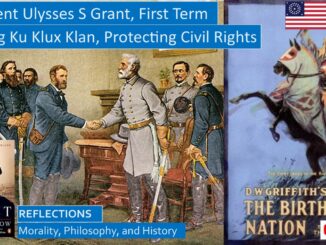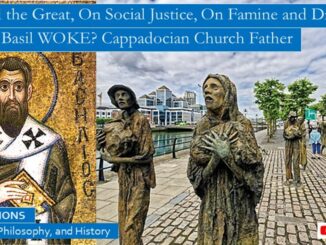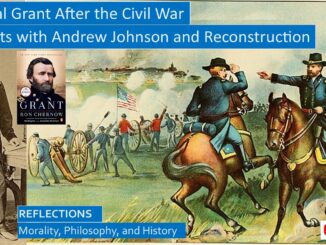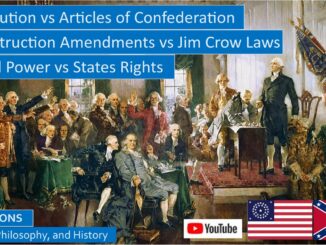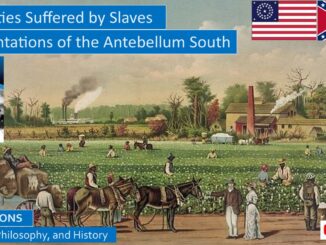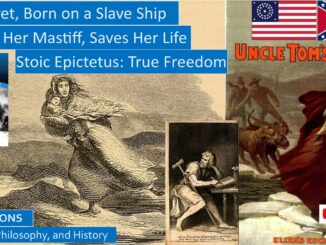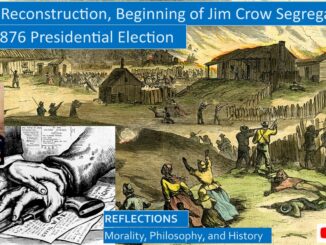
After Grant: Southern Redemption and Jim Crow, Reconstruction Ends after Contested 1876 Election
What were his greatest accomplishments? Chernow states that “Grant showed a deep reservoir of courage in directing the fight against the Ku Klux Klan and crushing the largest wave of domestic terrorism in American history. It was Grant who helped to weave the Thirteenth, Fourteenth, and Fifteen Amendments into the basic fabric of American life.”
Chernow rues: “Once Reconstruction collapsed, it left southern blacks for eighty years at the mercy of Jim Crow segregation, lynchings, poll taxes, literacy tests, and other tactics designed to segregate them from whites and deny them the vote. Black sharecroppers would be degraded to the level of debt-ridden serfs, bound to their former plantation owners. After 1877, the black community in the South steadily lost ground until a rigid apartheid separated the races completely, a terrible state of affairs that would not be fixed until the rise of the civil rights movement after World War II.” […]

